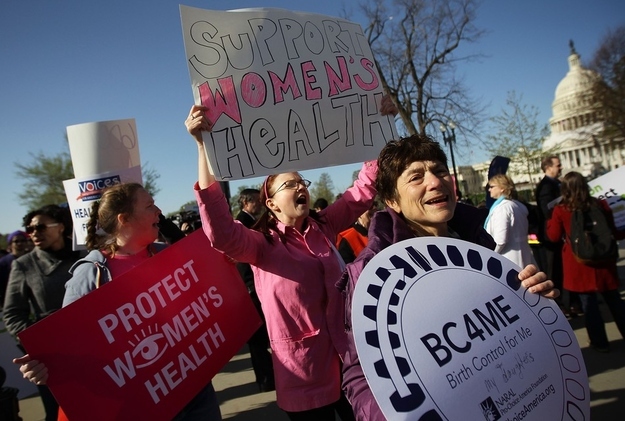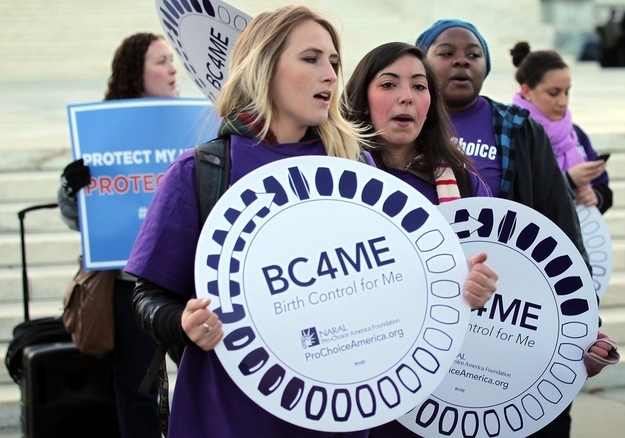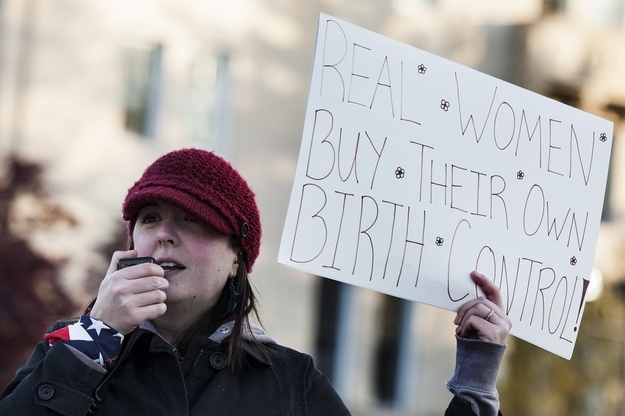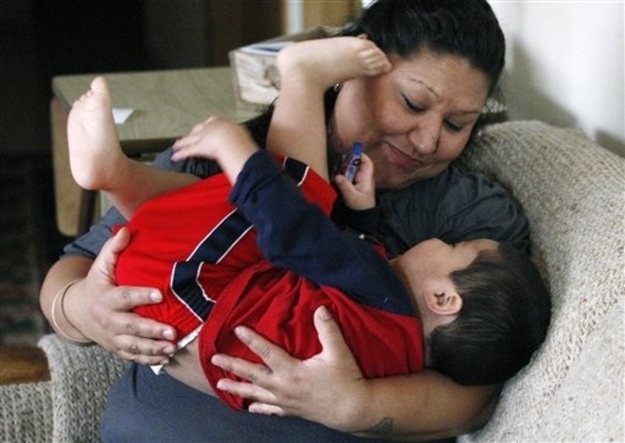The Supreme Court began hearing arguments on the Affordable Care Act on Monday, and will make a decision on Wednesday. While they may decide to overturn or uphold the entire law, they could also rule against only the "individual mandate" provision, which requires every citizen to carry health insurance, and sever it from the bill.
At stake for women: A series of separate mandates on health insurers changing the way female patients are treated. And while severing the individual mandate would in theory preserve these, it might also begin unraveling the law itself. That outcome, or the Court's striking down the entire bill, would have dramatic consequences for those aspects of women's care.
Here are four ways the reversal of what both sides of the debate now call "ObamaCare" would change things:
1.
Gender-rating
Judy Waxman of the National Women's Law Center, which backs the law, told BuzzFeed that "the Affordable Care Act has many fabulous features for women" and "ends the long-term discrimination against women that is prevalent in our health system now." In particular, 92% of health plans on the individual market currently charge women more than men for the same plan (this is not counting maternity care). That practice is called gender-rating. If things stay the same, women in the US will pay $1 billion more than men this year, and that's not even taking pregnancy into account.
The Affordable Care Act would ban gender-rating — and indeed all differential pricing of plans based on personal characteristics (age is another popular one). But the President has asked that if the Court strikes down the individual mandate, it strike down the rating ban as well. So if the mandate goes, gender-rating could stay.

2.
Maternity care
Waxman says that unless state law specifically requires insurance plans to cover maternity care, only 6% of plans on the individual market do. But if the Supreme Court upholds the Affordable Care Act, all plans will have to cover it.

3.
Contraception
The requirement that all insurance plans cover birth control without a co-pay is part of the Affordable Care Act — so if it goes down, so does this requirement. Waxman also notes that if the Court decides to strike down the individual mandate, they'll have to determine what other provisions of the law will go with it, and contraceptive coverage could be one of them. This provision has already been extremely controversial — Obama tried to put out the fires by guaranteeing that religious employers wouldn't have to provide contraceptive coverage themselves (insurance companies would pay for it instead).
The Catholic Bishops have blasted the plan as an intrusion on religious liberty, though there are dissenters in the Church. Sister Simone Campbell of NETWORK: A National Catholic Social Justice Lobby told BuzzFeed she considered it "an elegant solution" that respects the rights of both religious organizations and individual women. But that solution might be out the window if the law — or the individual mandate — don't clear the Court.


4.
Medicaid expansion
Sister Campbell said the part of the bill NETWORK cares most about is its expansion of Medicaid coverage. Currently, low-income women can be on Medicaid if they have minor children, but once the kids grow up, these women are no longer eligible. The expansion would change that, making all low-income adults eligible for Medicaid. Campbell says, "middle-aged women who hold low-wage jobs without health insurance are the ones who will benefit most from the Medicaid expansion."
On the flipside, according to Emily Spitzer of the National Health Law Program, 26 states have asked the Supreme Court to rule against the expansion. If it does, that could threaten Medicaid itself, and with it "immunizations for poor children, pregnancy services for women, nursing home and community based care services for elderly people and people with disabilities."

For those who want to see it for themselves, a searchable version of the entire law is available here.
